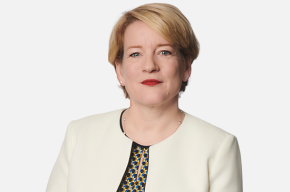By Rachel Aldridge, Managing Director, Regulatory & Compliance Solutions, UK
In the fast-evolving world of private funds, the role of a compliance leader has never been more critical—or more challenging! During a roundtable at the BVCA’s recent Technical Policy Conference, we brought together several leaders from the private funds space to debate what makes a great compliance leader.
With new regulations continuously shaping the UK’s financial landscape, and teams under pressure to do more with fewer resources, the compliance function is under increasing scrutiny.
Our roundtable conversation revolved around recruitment, talent management and organisational culture. It’s clear that compliance leadership is not just about following the rules—it is about shaping a firm’s future and fostering an environment where ethical conduct and regulatory compliance are embedded in every decision. Here’s a look at what makes a great compliance leader in today’s private funds landscape.
Critical skills of a compliance leader
The role of a compliance leader is complex, requiring different skillsets to navigate the complexities of the regulatory environment. At the roundtable, we identified several critical skills that define a great compliance leader:
Compliance leaders must be strong communicators and be able to engage with various stakeholders, balancing the interests of the firm with regulatory obligations. Their ability to communicate effectively across all layers of the firm is key.
A deep understanding of the business model, its investor profile and profit sources is crucial. Compliance leaders need to know how their firm operates to ensure that compliance measures are both practical and impactful.
The ability to identify problems and find pragmatic solutions is essential for a great compliance leader.
Breaking down complicated regulatory matters into clear, actionable steps is a skill that ensures everyone in the firm is aligned on compliance requirements.
A great compliance leader has a keen eye for identifying and mitigating risks that could harm the business or its reputation.
Compliance leaders need to master the relevant laws and regulations to guide the business effectively.
Great compliance leaders don’t just mitigate risk; they see opportunities in regulatory change that can benefit the firm.
Encouraging diverse perspectives ensures the compliance function is robust and adaptable to change.
Compliance leaders must understand how the different departments interact in order to have a holistic approach towards problem solving.
The personal qualities that set great leaders apart
While technical skills are essential, personal qualities are what differentiate a good compliance leader from a great one. At the roundtable, we agreed on a set of personal qualities that are indispensable for a great compliance leader:
A great compliance leader must create an environment where employees feel comfortable coming to the compliance team with questions and suggestions.
Building strong relationships across departments is key. Compliance should not be seen as a silo but as a partner in the business.
Rather than being just a ‘rule enforcer’, a great compliance leader must ask the right questions that will drive deeper thinking and a better understanding of the importance of compliance.
Compliance doesn’t have to be a box-ticking exercise. Creativity in problem-solving and regulatory implementation can lead to more innovative and effective solutions.
Great compliance leaders exercise sound judgment while being non-judgmental. They create an environment where people can admit mistakes and learn from them.
Managing sensitive information with discretion and integrity is critical in a compliance role.
A leader who is open to challenge creates a culture of continuous improvement and innovation within the compliance function.
Top 5 tips for success in compliance leadership
So how can compliance leaders ensure they are set up for success? Here are a few tips we gathered from our roundtable discussion:
1. Identify "flag wavers"
2. Engage early in business decisions
3. Make compliance easy
4. Listen and act on staff concerns
5. Expose young leaders to all disciplines
Compliance leadership is an ever-evolving role that requires not only strong technical expertise but also personal qualities and strategic insight. In a world of increasing regulation and business pressure, great compliance leaders must be agents of change who drive a positive and ethical culture throughout the firm.







